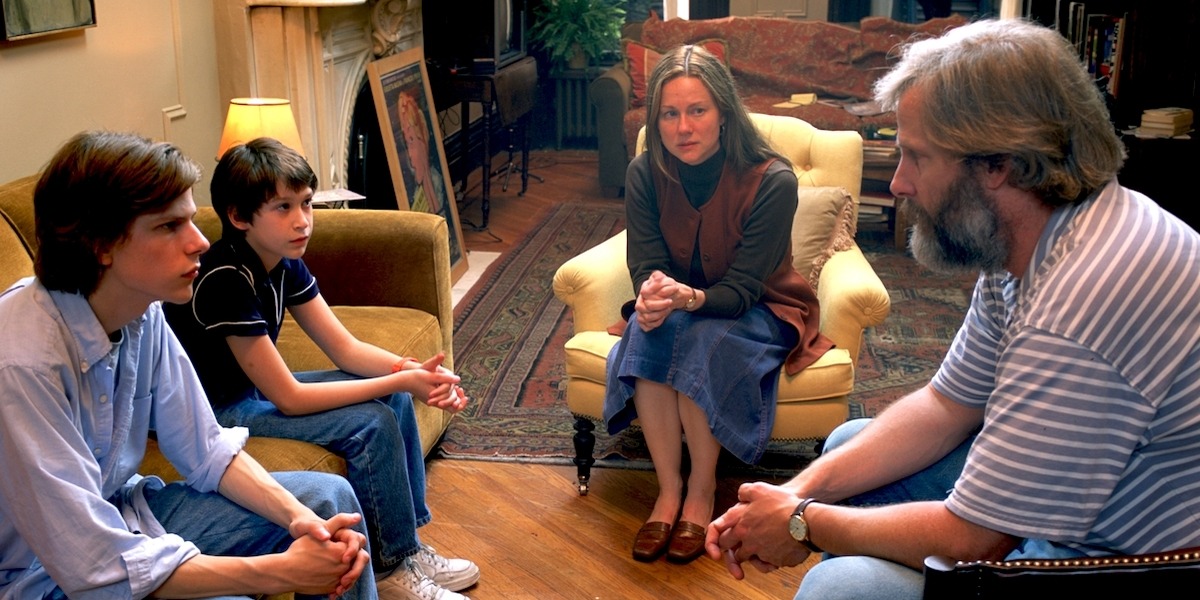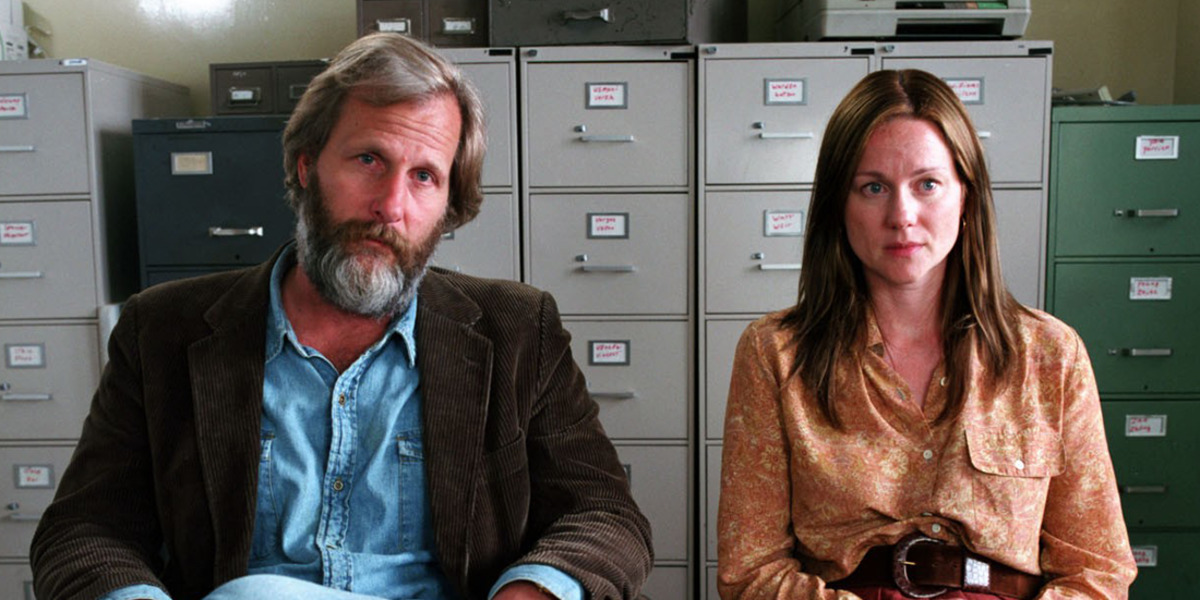‘The Squid and the Whale’ is a 2005 comedy-drama film directed by Noah Baumbach and produced by Wes Anderson. It stars Jeff Daniels, Laura Linney, Jesse Eisenberg, and Owen Kline in the lead roles. The film tells a painfully funny story of two children going through their parent’s divorce while growing up in Brooklyn. Given the deeply personal and irreverently universal feeling the narrative provides the critical acclaim received by the film (including an Academy Award nomination for Best Original Screenplay), viewers must wonder if the story is based on actual events. So, if you are looking for details about the events that inspired ‘The Squid and the Whale,’ here is everything you need to know!
Divorce Through a Director’s Lens: A True-to-Life Tale
Yes, ‘The Squid and the Whale’ is partially based on a true story. The film is based on a story written by Noah Baumbach (‘Marriage Story‘), who also penned the screenplay. He rose to prominence with his debut directorial film, the 1995 comedy-drama ‘Kicking and Screaming.’ After collaborating with Wes Anderson on the 2004 adventure-comedy film ‘The Life Aquatic with Steve Zissou,’ the latter produced Baumbach’s third directorial feature film (excluding the unfinished 1997 comedy ‘Highball,’ which he has disowned). For his third outing as a writer and director, the director drew from his personal experiences and chose the theme of divorce to stage his narrative.

The resulting screenplay, titled ‘The Squid and the Whale,’ is partially based on Baumbach’s real experiences he faced during the separation of his parents while he was in his adolescent years. His father, Jonathan Baumbach, was an experimental fiction author, while his mother, Georgia Brown, was a film critic and author. She was Jonathan’s third wife following two failed marriages. However, the couple’s relationship ended in divorce. They had two children, Noah and his younger brother, Nico Baumbach.
The movie represents the Baumbach family through four main characters, including Bernard and Joan Berkman (loosely based on Jonathan Baumbach and Georgia Brown). On the other hand, the brothers Walt and Frank Berkman are primarily based on Noah and Nico Baumbach. However, the filmmaker has stated that the movie does not directly represent his life with his parents and brother. He has explained that he fictionalized his experiences to craft the story, which uses his parents’ divorce as an inciting incident. During an interview with Indie Wire, Baumbach spoke about the movie’s conceptualization and writing process.
“In order to make it, I wrote in a very personal, raw, uncensored way about very familiar things to me. But doing that allowed me to reinvent it. If this movie weren’t so effectively fictionalized, it wouldn’t feel so real. I’m sure it’s weird, though — to see something even somewhat related to what we went through,” the writer-director said about drawing inspiration from his life for the story. He also noted that the movie is more fictional than viewers assume and reveals little about his life with his family. Despite effortlessly meshing reality and fiction to craft the screenplay, Baumbach has refused to define which elements are based on actual events and which parts are entirely fictional.
Speaking to AV Club in a 2005 interview, Baumbach explained that the scenes in the movie aren’t precisely from his life. Instead, they serve the narrative and are meant to portray a universal reaction to something as menial as losing a parking spot. “I understand—and I’m flattered, even, to some degree—that people care and want to know what’s real and that the movie provokes that reaction. I think, in some ways, it’s intended to. But for me, “wondering” is what it’s about, not “answering.” Because there is no answer. These are people and places I know really well, but the movie’s a work of fiction,” he stated.
From Baumbach’s words, we can deduce that the film is not meant to explore his real experiences but the universality of divorce and its impact on a family. Furthermore, differentiating the fictional aspects from the real ones would be counterproductive. In contrast, blending fiction and reality allows Baumbach to explore the dynamic between intellectual and emotional awareness. The writer-director extracts compelling drama by analyzing the conditioning of its characters and the impact of the circumstances they face. Hence, despite being partially based on actual events, most of the movie is a work of fiction, best described as semi-autobiographical.
Read More: Saddest Movies on Netflix


You must be logged in to post a comment.